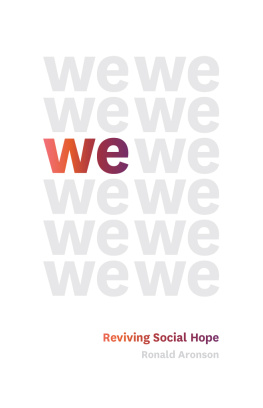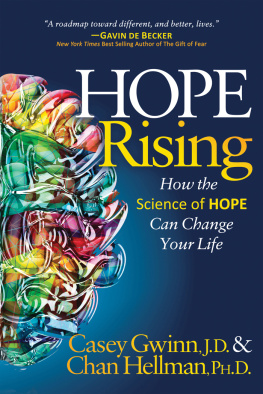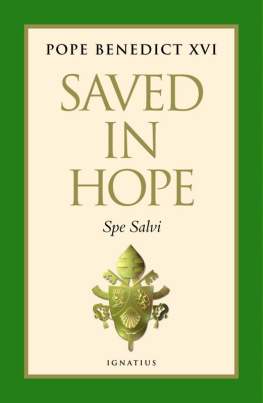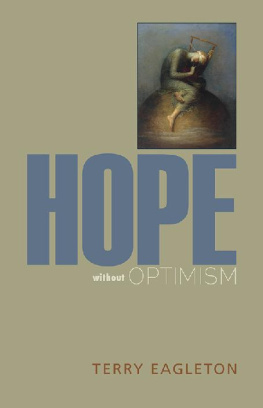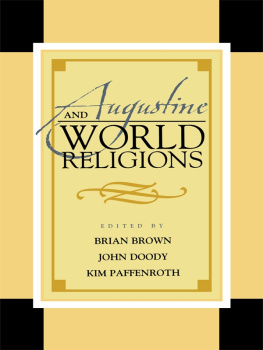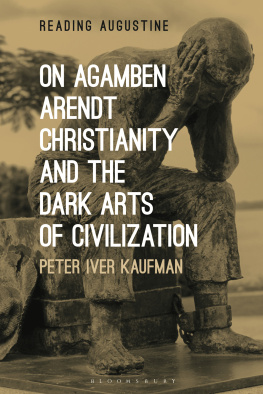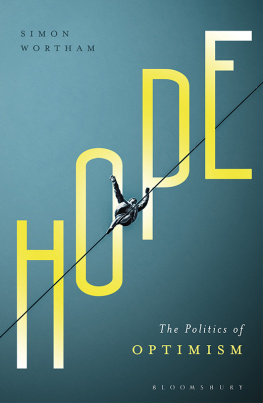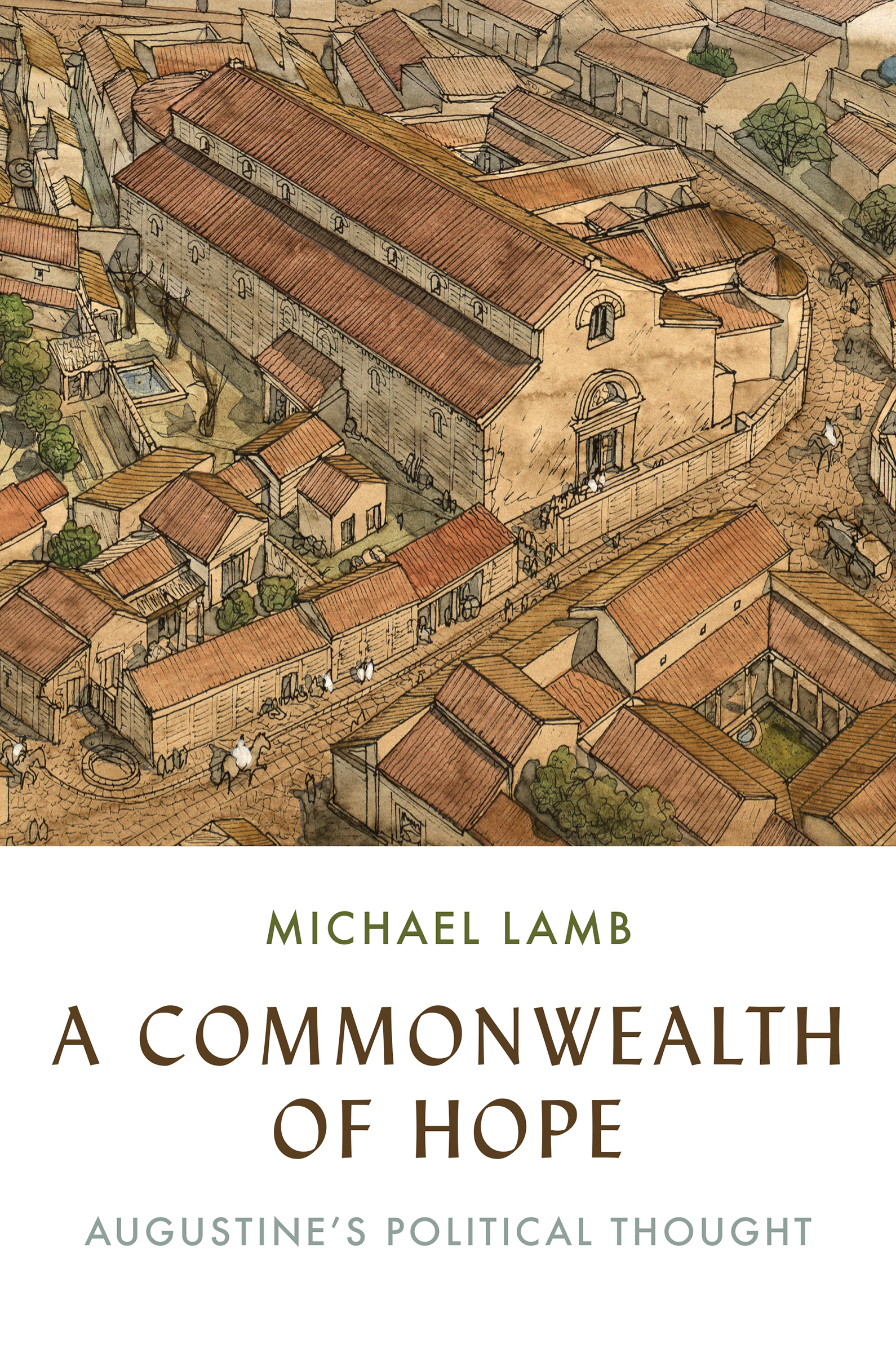A COMMONWEALTH OF HOPE
A Commonwealth of Hope
AUGUSTINES POLITICAL THOUGHT
MICHAEL LAMB
PRINCETON UNIVERSITY PRESS
PRINCETON & OXFORD
Copyright 2022 by Princeton University Press
Princeton University Press is committed to the protection of copyright and the intellectual property our authors entrust to us. Copyright promotes the progress and integrity of knowledge. Thank you for supporting free speech and the global exchange of ideas by purchasing an authorized edition of this book. If you wish to reproduce or distribute any part of it in any form, please obtain permission.
Requests for permission to reproduce material from this work should be sent to
Published by Princeton University Press
41 William Street, Princeton, New Jersey 08540
99 Banbury Road, Oxford OX2 6JX
press.princeton.edu
All Rights Reserved
Library of Congress Cataloging-in-Publication Data
Names: Lamb, Michael, 1982 author.
Title: A commonwealth of hope : Augustines political thought / Michael Lamb.
Description: Princeton, New Jersey : Princeton University Press, [2022] | Includes bibliographical references and index.
Identifiers: LCCN 2021048327 (print) | LCCN 2021048328 (ebook) | ISBN 9780691226330 (Print : acid-free paper) | ISBN 9780691226354 (eBook)
Subjects: LCSH: Augustine, of Hippo, Saint, 354430Political and social views. | Political sciencePhilosophyHistory. | Christianity and politics. | BISAC: PHILOSOPHY / Political | RELIGION / Theology
Classification: LCC JC121.A8 L36 2022 (print) | LCC JC121.A8 (ebook) | DDC 320.092dc23/eng/20220213
LC record available at https://lccn.loc.gov/2021048327
LC ebook record available at https://lccn.loc.gov/2021048328
Version 1.1
British Library Cataloging-in-Publication Data is available
Editorial: Rob Tempio and Chloe Coy
Production Editorial: Kathleen Cioffi
Jacket Design: Heather Hansen
Production: Erin Suydam
Publicity: Alyssa Sanford and Charlotte Coyne
Copyeditor: Hank Southgate
Jacket image: Jean-Claude Golvin (b. 1942), watercolor painting of Hippo Regius, ancient name of the modern city of Annaba, Algeria. Muse dpartemental Arles Antique Jean-Claude Golvin / ditions Errance
For my parents,
Ken and Angela Lamb,
who taught me how to hope
CONTENTS
- ix
PREFACE
Why Augustine? Why Hope?
AUGUSTINE OF HIPPO is one of the most influential thinkers in the history of political thought. A North African bishop and theologian who lived in the Roman Empire at the turn of the fifth century and was later recognized as a saint in the Catholic Church, Augustine served as an essential bridge connecting Greek and Roman philosophy with medieval Christianity.
Much of Augustines influence came through appropriations by medieval philosophers and theologians.
Augustines impact has not been limited to the Roman Catholic Church.
Prominent political thinkers have also engaged deeply, if sometimes critically, with Augustinian ideas.
Augustines complex legacy extends into contemporary political theory.
Augustines political influence is not confined to the academy. Public intellectuals ranging from David Brooks, E. J. Dionne, and Jon Meacham to Roosevelt Monts, Cornel West, and Molly Worthen have invoked Augustine in their analyses of religion, politics, and culture,
Augustines authority is apparent in the Christian church and broader public culture. Before becoming Pope Benedict XVI, Joseph Ratzinger wrote his dissertation on Augustine, and Pope Francis has described Augustine as one of his favorite saints.
Yet, if modern political culture remains in the shadow of Augustine, as one scholar put it, this Augustine is largely an Augustine of shadows. Darkness and pessimism prevail. The world is a vale of tears, and government is nothing but a remedy for sin. Politics remains tragic, limited, and hostage to necessity. Citizens must either do the lesser evil so that good may come or retreat from politics altogether, finding refuge in an otherworldly vision of heaven or the purity of the institutional church.
This was the portrait of Augustine I encountered in college. As I read fragments of City of God, I learned more about Augustines two citiesthe earthly and the heavenlyand how this contrast was intended to direct us away from the world and toward heaven. The picture that emerged was of an otherworldly, sin-obsessed pessimist who encourages us to renounce the world and seek the City of God.
As I pursued graduate work, however, a more complex image of Augustine began to take shape in my mind. Here was a thinker who grew up in a rural farming community in North Africa on the edges of the empire, far away from the center of civilization in Rome. where for roughly forty years he served his people and his place, teaching farmers, merchants, and monks in Hippo, advocating on behalf of the poor and vulnerable, writing letters, sermons, and books on theology, ethics, and politics, and encouraging diverse citizens to share a common life together. For mea student of political theory who grew up on a small farm in rural Tennessee, received a scholarship to a liberal arts college that my family could not otherwise afford, took a leave from graduate school to manage political campaigns, and returned to study politics, ethics, and religion with a desire to go back to my home region to teach and writeAugustines life acquired a relevance that was missing, even as some of his complicities and commitments came to seem more disturbing than before.
As I took more courses and analyzed sermons, letters, and treatises often neglected in political theory, I also began to suspect that the pessimism often associated with his name was anachronistic. I kept coming across passages explicitly extolling the virtue of hope or implicitly designed to encourage his readers cultivate it. But I could not discover a single book-length treatment of Augustines account of hope in English. So I set out to write such an account, one both sensitive to his historical context and concerns and capable of correcting, or at least complicating, the received image of his pessimism.
On the question of hope, Augustine is an especially valuable, if unlikely, ally in our contemporary moment. In the face of political division, racial injustice, economic inequality, and ecological devastation, many citizens are understandably tempted to despair, wondering if politics can offer any hope in our troubled times. Others are tempted to downplay, neglect, or reject the real challenges we face. Augustine offers another way. He criticizes pride, presumption, and the lust for domination while also resisting cynicism, resignation, and despair. Recognizing both the limits and possibilities of politics, he encourages a realistic hope for a better form of community not only in heaven but on earth and actively works to instantiate it through his service and citizenship. By holding together a robust critique of injustice with a legitimate hope for concord, he shows the importance of finding the mean between presumption and despair. Despite my many disagreements with him, I have found this feature of his work instructive, even inspiring.
To uncover this account, I will need to challenge the pessimistic reading of Augustine, integrate evidence from multiple sources, reexamine overlooked texts, and revisit more familiar ones, all while questioning some assumptions that most interpreters have taken for granted. Throughout, I will try to view Augustines all-too-familiar ideas as if for the first time. As he himself once asked, Isnt that what happens when we show beautiful scenes which we have often gone past with a careless glance, but which give us fresh joy as we share others joy on first seeing them? The more, by the bond of love, we enter into each others mind, the more even old things become new for us again. My hope in this book is to make Augustine new for us again.


